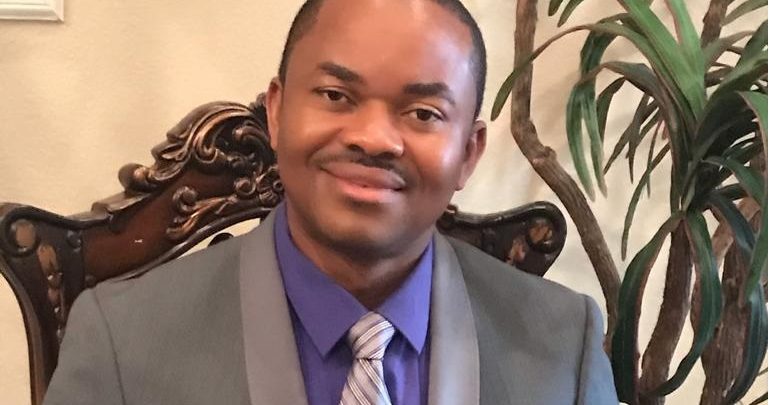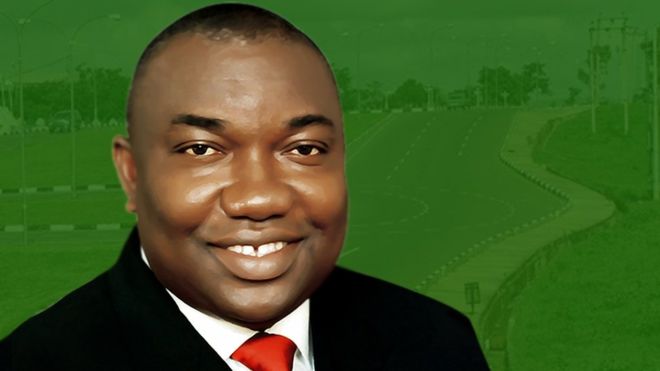GROpinion
Enugu State beyond Prebendalism


BY: Osmund Agbo
When a recent NBS data reported Enugu as one of the only two states in the southeast with a poverty rate above the national average, my heart sank.
How could my very dear 042, a shining city on the hills compete for such unenviable spot with states of the northeast devastated by years of murderous rampage of Boko Haram.
Was I surprised? absolutely not. Here is a shocker for you; the old Nsukka zone where the current governor hails from likely contributed more than her fair share in this ignominious tragedy.
If you are a friend of mine, you might have noticed some reluctance to host you in my country home. It has nothing to do with me not being proud of where I come from. It’s more like not having the conscience to let you gallop down a treacherous alley of deep gully in what looks like a foot path on the way to explore a cave. And so if you insist, I have to warn you to dare visit at your own risk. Such is the fate of thousands of families that call my home town of Imilike-Agu home. Yet my friends don’t believe I have any right to complain since my ”brother” is now the governor of Enugu state.
There is the temptation for an average Igbo man to think of Nsukka simply as a town or in a broader sense, just a local government unit. It’s akin to a culturally naive American thinking that Africa is one tiny little village where everyone knows everybody. Of course we are all Africans but Africa is not a country and certainly not a village.
When someone identities as an Nsukka man, it may just mean that he was part of the old Nsukka zone and not necessarily from Nsukka as a local council unit or Nsukka town as one of 402 autonomous communities that constitute the now Enugu state. It’s similar to an Nnewi man being called an Onitsha man simply because Nnewi belonged in the old Onitsha senatorial district. Then to add to the confusion, there is the culturally identified Nsukka man which may now include people of Isi-uzo in today’s Enugu east senatorial district.


When it comes to Nsukka, it appears there is a very poor understanding of the aforementioned nuances of what one has to concede is an ambiguous nomenclature. That informs the basis for the total lack of appreciation of the huge population of people residing in the geographical space loosely lumped together as just Nsukka. For ages, this confusion had had a negative impact on attracting development to the area and hurt the region both politically and economically.
To put it in context, the old Nsukka zone had the same status as the old Enugu zone. Both were part of a five zonal structure comprising Enugu, Nsukka, Awka, Onitsha and Abakaliki in the old Anambra state.
Today, that same Enugu zone is now split in half into Enugu East and West senatorial districts with eleven local council areas within her borders whereas the old Nsukka zone still remains one senatorial district with only six council areas. In what looks like a sham attempt to placate, Isi-uzo was carved out to join with the old Enugu. The old Enugu zone with roughly same population as old Nsukka zone would have to produce two governors before Nsukka can produce one in the current zoning arrangement. Of course that was possible because those who mattered at the time were all from the old Enugu zone. We are a people with a warped sense of justice and fairness, enmeshed in the most primitive politics of prebendalism.
You can now begin to appreciate how the problem was compound for a people who starting out were already a whole generation behind in terms of economic development. Which is why the loud cry of marginalisation that gave birth to Enugu state in 1991 still re-echoes loudly today for the creation of Adada state.
In governor Ugwuanyi’s first inaugural speech, he rightly identified the huge lopsidedness in development of Enugu state to the disadvantage of Nsukka area. He made it pretty clear that he would seek to address those. Up until now, there is nothing to suggest he had ignored other regions of the state in terms of political appointment and allocation of infrastructural projects in pursuit of that goal . Even then, there is this unfounded narrative that he may have left Enugu to rot in favour of his very dear old Nsukka.
I think it’s fair game to interrogate Gov. Ugwuanyi administration’s overall performance in governance. I believe it’s the civic duty of every citizen and should be encouraged. But there is no question that he has not only been fair in his distribution of political appointments and allocation of state resources, he is just. That said, it’s doubtful that his best effort will help his approval in the eyes of those who see things a little differently. It’s akin to how Jonathan was perceived by the north despite all the massive development effort he channelled to the region, which arguably was more in comparison to his home state of Bayelsa. For some, any development effort outside Enugu city doesn’t just seem to count at all.
We are not suggesting any form of favoritism to the benefit of one region of the state over the other. Not at all. On the contrary, we are against that since Enugu belongs to us all. Enugu however, need to carry all her citizens( rural and urban) along the path of development as well as put her best foot forward if she plans to break through the shackles of under-development. Her growth for sure will be stunted if all efforts are concentrated in maxing out a city that is already as modern as it could get, at least by Nigerian standard.
Enugu should be ready to pay more attention to her rural communities as a way to lift her citizens out of chocking poverty.
Dr. Agbo is the President/CEO of African Center for Transparency
-



 GROpinion10 hours ago
GROpinion10 hours agoThe Dark Side of Failing the Citizens and the Paradoxical Thriving of Undemocratic Politicians in Democracy
-





 News5 days ago
News5 days agoAbuja Programme of activities for late Barrister Princess Nwamaka Mediatrix Chigbo
-





 News5 days ago
News5 days agoGOCOP condoles with former president on Death of her sister






